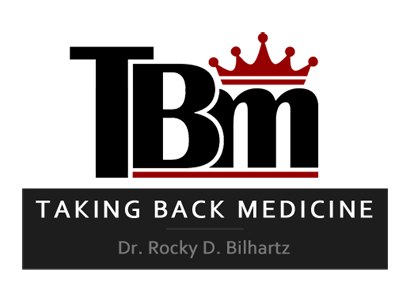I had to bring in another one.
Another company.
I’ve now lost count.
I just know the number of 3rd-parties involved with documenting the medical care I provide exponentially dwarfs the actual people that I have providing it.
The latest company deals with something called “mapping.”
Certified mapping, if you will.
Now, take what I’m about to say with caution, because I’m not here to steer you wrong. But, when it comes to healthcare in this country, the following advice comes from my own experience:
Whenever you learn about someone, or something, or some other entity getting another medical “certification,” run away from them. Go the other direction. For one, it means that you probably won’t be able to afford them. But two, the certified medical system has just gone haywire.
I’ll break it down for you.
I’ve got a certified medical degree. I’m board certified in Internal Medicine. Board certified in General Cardiology and Cardiovascular Disease. Board certified in Interventional Cardiology. Board certified in Nuclear Cardiology. In fact, for the majority of these, I’m board certified under TWO different organizations.
In my office, I use a certified electronic medical record. It requires a certified data submission vendor. This must integrate with a certified data registry. And, I’m not certifiably making this up.
My office owns certified testing equipment. I oversee certified laboratory studies. For example, my echo lab is certified by ABC. My nuclear medicine lab is certified by DEF. The letters have been changed, but the certifications are real. In some areas, I have more certifications than the hospital.
But, the hospital is plenty certified, too. Over there, we are Chest Pain certified. Stroke certified. I could just go on and on.
I used to be proud of a few of these certifications.
Then, I realized they are one reason people can’t afford their healthcare.
So, I hate them now.
If all of them were making the product that I provide to you better in some way, I would have no problem with them. But, they are not.
Every one of them is deeply tied to the government’s involvement in healthcare. None of them are really like Consumer Report at all. You don’t voluntarily seek them out for the value they provide. They get pushed into existence. And, when they fail, one more is added; never is one taken away.
Let me get back to the “mapping.”
It’s been legislated for me to submit medical “quality” metrics to the Center for Medicare and Medicaid Services (CMS).
Based upon what I submit, CMS will give me a score.
The score determines whether I will receive payment bonuses or penalties from the government for the services that I provide to patients.
The entire ruckus is budget neutral for the government.
So, in reality, no real bonuses are being added to the top of any pot.
I just either (1) take money from other doctors who don’t play the game as well as I do, or (2) these other doctors take money from me.
The point of the mapping company is to basically write computer programs behind the scenes that will catch more buzzwords that appear in my office notes.
The more buzzwords the mapping company can find, the more points I receive.
At this time, the government is awaiting my submission of nine certified “quality” metrics.
The mapping company’s role is to help me determine which nine metrics—there are dozens and dozens of government certified ones to pick from—I should submit to CMS to receive my highest possible doctor score.
Basically, which metrics will make me look the best. In other words, a bonafide lipstick on the pig game.
I spoke with the mapping company on the phone for nearly two hours last Friday afternoon. Sara was walking me through it all. It went something like this:
Sara (from the mapping company): “Here is an easy metric for you to meet. Do you see patients who are overweight?”
Me: “Of course, all the time.”
Sara: “Whether you measure it or not, document the patient’s height in all your notes. This way, our mapping formula can determine which patients are overweight. This helps you prove to CMS that the patient is obese. Then, you have to show CMS, through documentation, that you addressed it in some way. For example, do you ever talk to patients about making lifestyle modifications?”
Me: “All the time.”
Sara: “What words do you use?”
Me: “Say what?”
Sara: “It doesn’t really matter what you actually say. Just when you say it, put the same verbiage in your note each time. For example, ‘counseling for weight loss’ or ‘recommend lifestyle changes.’ If you include the same words in your note every time, we can map to them. You will get credit for being a good dietician.”
Me: [No response.]
Sara: “Now, let’s look for another metric you should submit. [She pauses, momentarily.] Here’s one at which you definitely excelled. It’s a reverse metric. It means that the goal is to be as close to zero percent as possible. In fact, look here. You are perfect. You scored zero percent!”
Me: “Which metric is that one?”
Sara: “It deals with ordering imaging tests for back pain. The goal is to NOT order very many tests. You are doing a fantastic job on this one.”
Me: “I don’t even routinely manage back pain. I’m a cardiologist.”
Sara: “It doesn’t matter. According to what we’ve mapped, each time you documented ‘back pain’ as a diagnosis in your note… and let’s see here… yep, it happened just one time last year… you apparently did not do anything about it. In fact, there is no documentation you have ever ordered any tests for back pain at all. This gives you a perfect score for this metric. Congratulations.”
Me: “Let me get this straight. Somebody somewhere has decided too many imaging studies are being performed for the diagnosis of back pain. So, the solution to this problem, in someone’s infinite wisdom, is to reward the doctors who don’t order any tests? I just document the problem. Then, I document doing absolutely nothing about it. And, my score goes up?”
Sara: “Precisely.”
That is certifiably insane.
How long will it take for us to realize that “quality” in healthcare will not be achieved in this way?
Numbers make sense when they have a single dimension, magnitude. But, human beings are multidimensional creatures full of infinite abstractions.
I love the example Sowell gives related to the endless discussions we have about who is “the greatest” in a particular sport. Debates like these are unsolvable because there is no common denominator to use, even in something like sports where facts get extensively recorded beyond dispute in super slow-motion video.
In 1996, The Baseball Encyclopedia was in its 10th edition. It weighed more than eight pounds and contained over 3,000 pages of tiny print detailing the statistics of every player in Major League Baseball history. But neither this book, nor any that followed it, solved the question of baseball’s “greatest.”
Healthcare is comprised of uncountable intricacies that far exceed those created by a ball and a bat. Yet, its fate will be the same; in part, because defining health—and deciding who provides it superiorly or inferiorly—is fundamentally a conceptual, not empirical, quandary.
The vision of the anointed is clear:
Risk our health on a system of arbitrary specifications.
Of course, my vision is equally crystal:
Dismantle that system.




